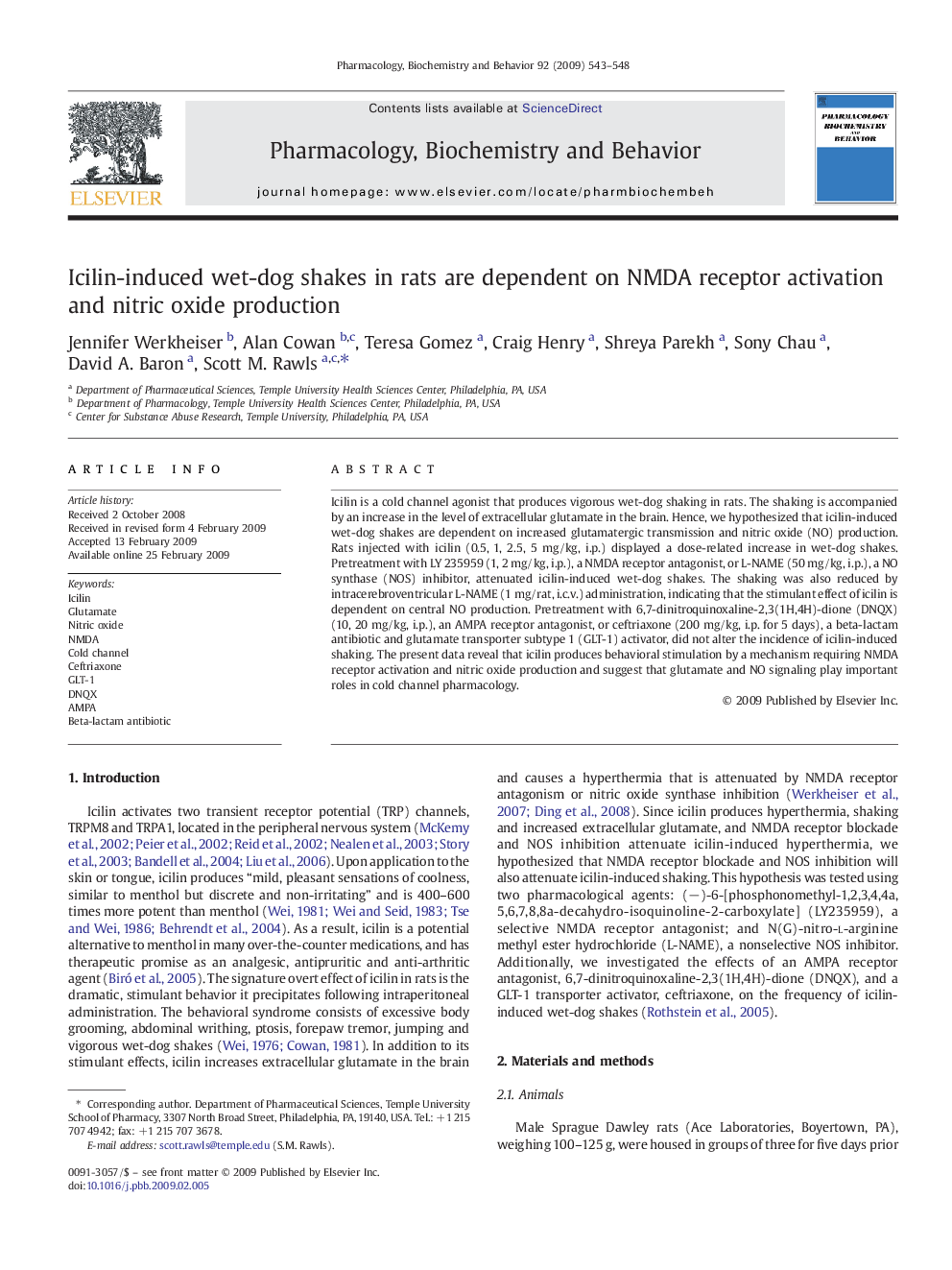| Article ID | Journal | Published Year | Pages | File Type |
|---|---|---|---|---|
| 2013754 | Pharmacology Biochemistry and Behavior | 2009 | 6 Pages |
Icilin is a cold channel agonist that produces vigorous wet-dog shaking in rats. The shaking is accompanied by an increase in the level of extracellular glutamate in the brain. Hence, we hypothesized that icilin-induced wet-dog shakes are dependent on increased glutamatergic transmission and nitric oxide (NO) production. Rats injected with icilin (0.5, 1, 2.5, 5 mg/kg, i.p.) displayed a dose-related increase in wet-dog shakes. Pretreatment with LY 235959 (1, 2 mg/kg, i.p.), a NMDA receptor antagonist, or L-NAME (50 mg/kg, i.p.), a NO synthase (NOS) inhibitor, attenuated icilin-induced wet-dog shakes. The shaking was also reduced by intracerebroventricular L-NAME (1 mg/rat, i.c.v.) administration, indicating that the stimulant effect of icilin is dependent on central NO production. Pretreatment with 6,7-dinitroquinoxaline-2,3(1H,4H)-dione (DNQX) (10, 20 mg/kg, i.p.), an AMPA receptor antagonist, or ceftriaxone (200 mg/kg, i.p. for 5 days), a beta-lactam antibiotic and glutamate transporter subtype 1 (GLT-1) activator, did not alter the incidence of icilin-induced shaking. The present data reveal that icilin produces behavioral stimulation by a mechanism requiring NMDA receptor activation and nitric oxide production and suggest that glutamate and NO signaling play important roles in cold channel pharmacology.
